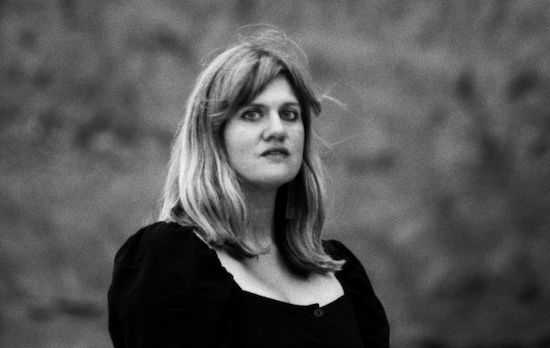To my English ears Mary Lattimore has a quintessential American youthfulness to her music, all inextinguishable exuberance and lust for life. Yet as we talk, that image is dispelled when what comes to the fore is the sense of an anxious artist desperate to start creating again, a concerned human being trying to make sense of it all. Lattimore is “not relaxed” and thinks things feel “very apocalyptic” in L.A, her home, at the moment. Forget the civil unrest and political turmoil, for her even the picture-perfect L.A sunsets have become tinged with a bittersweet hue: “the sunset is only technicolour because its filtered through gross pollution.” Yet even as toxicity lingers in the air around her and she perpetually doomscrolls through the avalanche of bad news on her social media feed, she still finds the time, or more to the point, the desire, to embroider pillowcases for friends.
There are limits to that altruism however and for a moment a sense of light-hearted self-reproach overrides her inherently thoughtful nature as she laughs “Why am I learning to embroider pillowcases when the world is on fire?” Like many of us she wanted to spend lockdown watching “a bunch of high-brow movies and get really educated with a bunch of books” but she found that impossible: “Things feel so trivial compared to what’s going on. Playing the harp feels the same.”
Either way we are lucky that Lattimore recorded her latest record before she became transfixed on the end of the world. At the heart of Silver Ladders is her desire to “expand the sonic palette” to step out of her usual way of making music in isolation on her computer by getting into a shiny studio and hooking up with a proper producer. The producer in question is Slowdive’s Neil Halstead, an artist whose consummate guitar work Mary has harboured a lifelong appreciation for. With their “brains combined” it took only nine days to record the album in Halstead’s personal studio in Newquay, with the atmospheric Cornish winter providing inspiration. While she evidently has a soft spot for the orange trees and palm lined avenues of L.A she also feels that “There’s a special kind of vibe when you’re at a seaside town in the winter, a serenity and kind of gloominess too.”
Playing the harp is a family tradition that stretches back to Lattimore’s grandmother, and she has a real zeal to challenge the preconceptions that come with the instrument, the seraphic associations with the hereafter as opposed to the here and now. Conscious of this, Lattimore says she’s working hard to introduce the instrument to young people, “trying to modernise it, trying to make it more accessible and not so precious, not so untouchable.”
When it comes to her Baker’s Dozen, which stretches from Motown to post punk, gospel to freak folk, Lattimore’s choices are typically eclectic, yet sharing a theme that can be seen beyond this, in her own work – an exploration of memory and place, and music’s profound and undeniable relationship to them.
Silver Ladders is out now via Ghostly International. Click the image of Mary Lattimore below to begin reading her Baker’s Dozen selections


